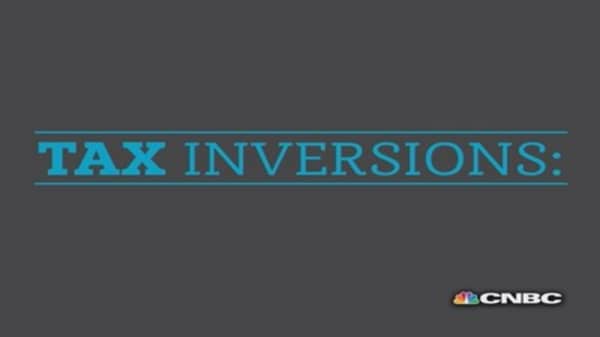A once-obscure tax dodge known as a corporate "inversion" is turning the debate over U.S. tax reform upside down.
In an inversion, a U.S. company sets up or buys another company in a country with a lower corporate tax rate and then calls the new country home—thereby dodging U.S. taxes it would otherwise have had to pay.
The trick is more than three decades old, but a wave of inversions this year has prompted the Obama administration to call on Congress to slam the loophole shut.
Read More Obama presses to close corporate tax loophole 'inversions'
How does it work?
When a company undertakes an inversion, it's basically just moving its legal address outside the country for tax purposes. That lets companies move some of their profits to their new homeland and pay less in taxes to the U.S. Treasury. Nothing else moves; it's business as usual for their American operations, employees and customers.
The White House estimates the Treasury could lose out on as much as much as $20 billion over the next decade. So the administration wants to require companies that claim they're no longer American to be more than 50 percent owned by foreigners. That would make new inversions much more difficult to pull off.





